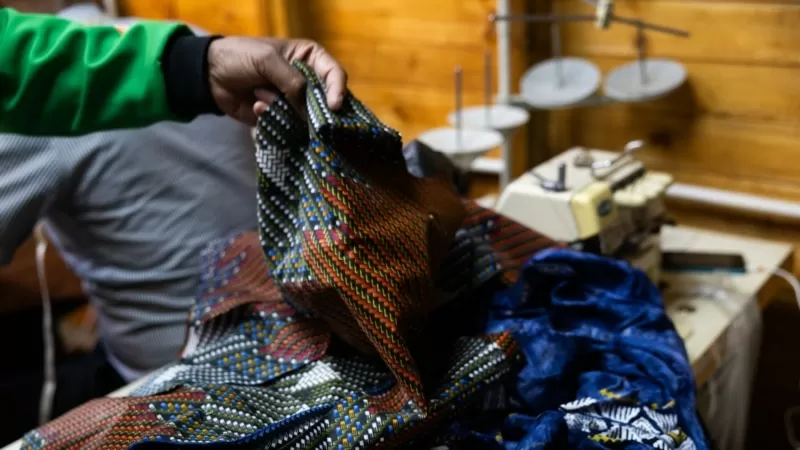Johannesburg – The African Growth and Opportunity Act (AGOA) has been a significant program for South Africa since its inception in 2000. This U.S. program has granted duty-free access to the enormous U.S. market for many South African exports, boosting the country’s economy and creating job opportunities. However, recent calls from some members of the U.S. Congress to exclude South Africa from AGOA have sparked concerns and debates about the future of this beneficial trade relationship.
The tension between the U.S. and South Africa’s ruling African National Congress (ANC) party has been ongoing since the implementation of AGOA. This tension stems from the ANC’s desire to portray itself as a human rights and democracy champion, while also maintaining a stance against Western imperialism and showing loyalty to countries that supported South Africa during the anti-apartheid struggle, including Soviet-era Russia.
However, despite these differences, South Africa has been a key trading partner for the U.S. in Africa, with over $20 billion in two-way trade volume in 2020, according to U.S. Census Bureau data. This trade relationship has not only benefited South Africa but has also been crucial for the U.S. economy.
Unfortunately, recent geopolitical stances taken by South Africa, such as its refusal to condemn Russia’s invasion of Ukraine and its criticism of Israel’s actions in Gaza, have led to calls for its exclusion from AGOA. This has raised concerns about the future of this mutually beneficial trade program.
In light of these developments, the South African government has sent a delegation to Washington to advocate for its continued participation in AGOA. This delegation is determined to showcase the country’s potential and the positive impact AGOA has had on its economy.
Economist Dawie Roodt believes that South Africa cannot afford to lose its eligibility for AGOA, given the country’s high unemployment rate and slow economic growth. He also believes that the recent formation of a coalition government, resulting from inconclusive May elections, will work in South Africa’s favor. This new government, formed by the ANC and a more business-friendly alliance partner, is a positive sign that South Africa is moving towards a more stable and business-friendly environment.
Roodt’s sentiments are echoed by fashion designer Sonwabile Ndamase, who remembers the visit of former U.S. President Bill Clinton to Soweto in 1998. Ndamase, who created the iconic “Madiba” shirts worn by former South African President Nelson Mandela, recalls the positive impact of AGOA on his business and the country’s economy. He believes that South Africa’s participation in AGOA is crucial for the growth and development of small businesses and the overall economy.
If South Africa’s eligibility for AGOA is revoked, the country can still trade with the U.S., but it will not receive the preferential rates enjoyed by other African nations. This could have a significant impact on the country’s economy, especially in the midst of a global pandemic and economic downturn.
In conclusion, South Africa’s participation in AGOA has been a crucial factor in the country’s economic growth and development. It has not only created job opportunities but has also strengthened the trade relationship between the U.S. and South Africa. As the country continues to navigate through political and economic challenges, it is essential for both the U.S. and South Africa to work towards maintaining this mutually beneficial trade program. South Africa remains committed to its partnership with the U.S. and is determined to showcase its potential and the positive impact of AGOA. Let us continue to build on this relationship for the benefit of both our nations.


